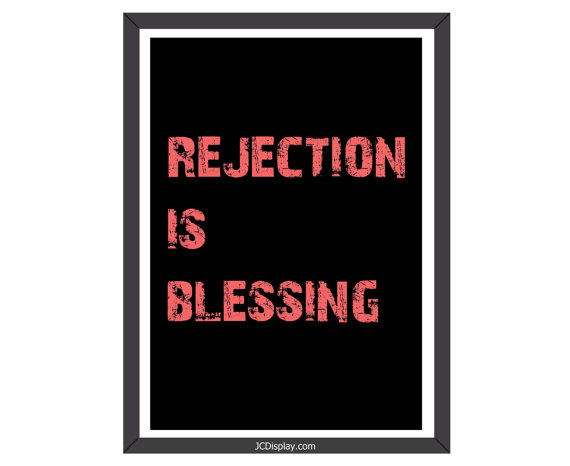
No matter how long you’ve been writing, it always gets to you. The formal rejection letter. The kind, but full revision request. No reply.
Writers are subjected to rejection as part of their job. But it doesn’t make things easier.
While I tend to get over it faster than I did 7-years ago when I started as a freelance writer, it still hurts the ego. Like a scab that you constantly pick at, my mind constantly asks, “Why oh why did I make that dumb mistake?”
That is, until I heard this Soundstrue podcast with Playing Big: Find Your Voice, Your Mission, Your Message author Tara Sophia Mohr. Here is a little excerpt from the transcript:
[A]s my writing and my work have gotten more visible, it’s a constant [struggle of], am I willing to challenge my inner critic on this one? Am I willing to not believe the voice that’s saying, “I’m not ready yet to write for that publication; I’m not ready to go on that TV show; I’m not enough of an expert on the topic.” I’ve got all of those voices inside of me…”
It’s familiar verbiage for anyone risking their creative hearts on the line. But what she says after that was really mind-blowing.
“…feedback only ever tells us about the person giving the feedback; it never tells us anything about ourselves. And I really believe that…
I believe that if a million people said, “I don’t like your book, Tara,” that wouldn’t make me a bad writer and that wouldn’t make the book a bad book, but it would tell me a whole lot about what works for a reading audience, what works for contemporary readers.
And when we start to see feedback that way, it all becomes emotionally neutral information that does not take our egos on a huge roller coaster, but just gives us insight and then if we realize, “Hey, that insight is about people that I want to reach or influence or engage, I better pay attention to it.” And if it’s not, then I don’t necessarily need to pay so much attention to it. So it just becomes sort of strategic information that can help you achieve your aims, which I believe is the role of feedback; not ego boosts or ego wounds, and certainly not evaluations of your merit.”
Amazing right?
Think about it. Every “negative feedback” you get is just evidence, information. We can allow it to define our self-worth or we can simply use it as objective data. As Mohr says, if it helps us get closer to our goals then we listen to it. If not? We don’t need to spend anymore time and energy on it.
I know it works because I’ve already used it.
Try it and let me know if it helps you too.
![]()

